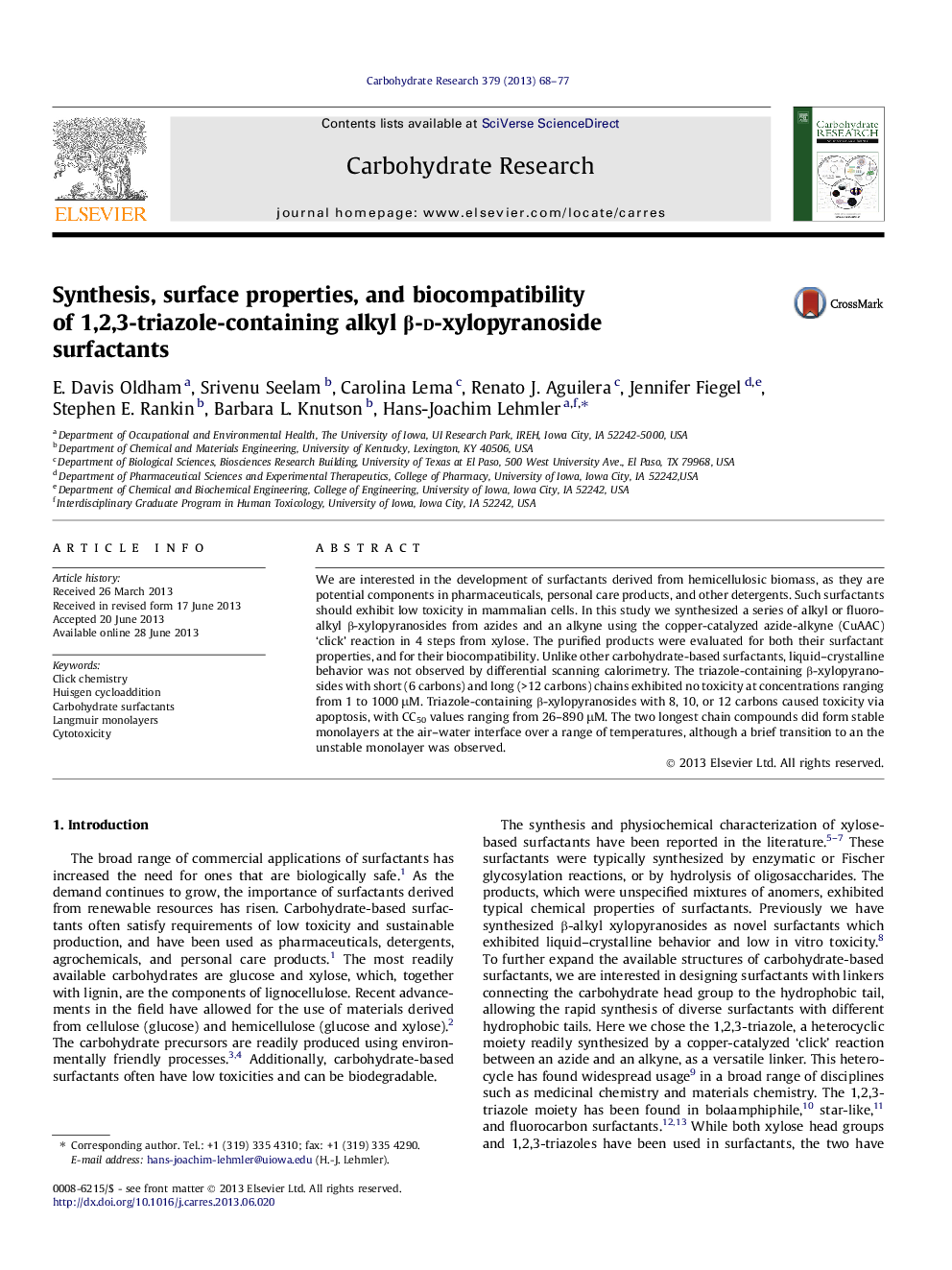| Article ID | Journal | Published Year | Pages | File Type |
|---|---|---|---|---|
| 1388709 | Carbohydrate Research | 2013 | 10 Pages |
•Alkyl triazole xylopyranosides were synthesized from xylose using ‘click chemistry’.•Alkyl triazole xylopyranosides were moderately toxic to non-toxic in cells in culture.•Alkyl xylopyranosides with intermediate chain length caused apoptosis, not necrosis.•Long chain alkyl xylopyranosides form stable monolayers at the air–water interface.
We are interested in the development of surfactants derived from hemicellulosic biomass, as they are potential components in pharmaceuticals, personal care products, and other detergents. Such surfactants should exhibit low toxicity in mammalian cells. In this study we synthesized a series of alkyl or fluoroalkyl β-xylopyranosides from azides and an alkyne using the copper-catalyzed azide-alkyne (CuAAC) ‘click’ reaction in 4 steps from xylose. The purified products were evaluated for both their surfactant properties, and for their biocompatibility. Unlike other carbohydrate-based surfactants, liquid–crystalline behavior was not observed by differential scanning calorimetry. The triazole-containing β-xylopyranosides with short (6 carbons) and long (>12 carbons) chains exhibited no toxicity at concentrations ranging from 1 to 1000 μM. Triazole-containing β-xylopyranosides with 8, 10, or 12 carbons caused toxicity via apoptosis, with CC50 values ranging from 26–890 μM. The two longest chain compounds did form stable monolayers at the air–water interface over a range of temperatures, although a brief transition to an the unstable monolayer was observed.
Graphical abstractFigure optionsDownload full-size imageDownload as PowerPoint slide
